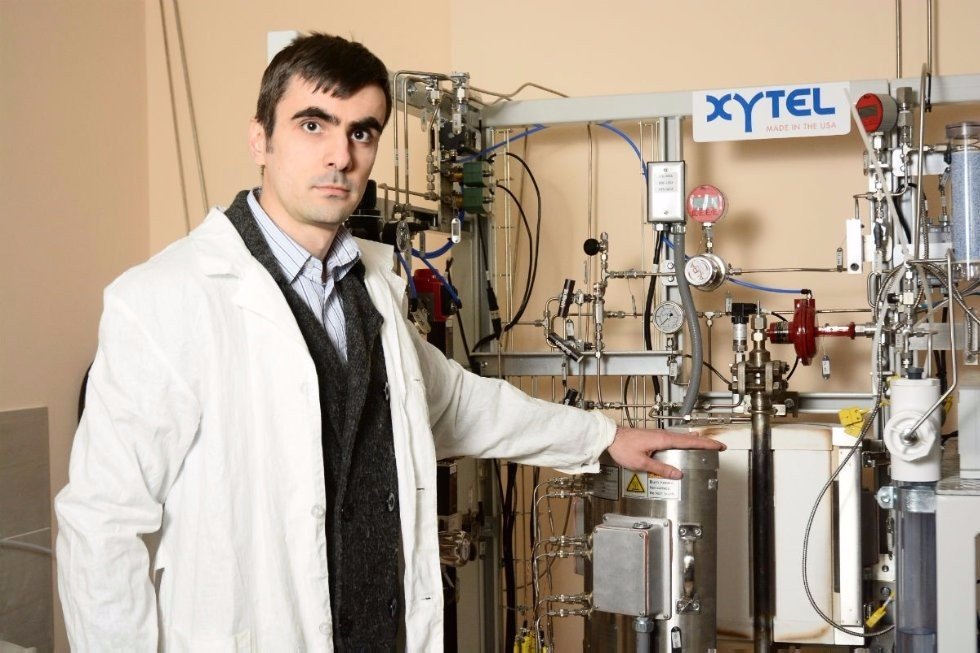There is no doubt that Kazan federal university is becoming one of the leaders in searching and developing innovative technologies for oil-gas area not only in Russia, but in the whole world. Bright example of that is the recent succession of our scientists’ publications in leading academic and trade journals. About one of them we told you a couple of weeks ago. It is interesting to note that the second article of KFU researchers devoted to the problem of combustion front stability was published in the same “Energy and fuels” journal
One of the article’s authors, Senior Fellow of research laboratory “In-Situ Oil Combustion” Andrey Galukhin told us: “In-situ combustion is one of the most promising methods of hydrocarbons recovery today, and, most likely, tomorrow. Not only it helps to extract oil from great depths, but also to enhance the feedstock properties. That is a brand new level. But in-situ combustion has its drawbacks that need solution. That’s exactly what we do. For example, currently in the lab we are researching the stability of combustion front – that criterion affects unique possibilities of the technology. We learned how to stabilize it using catalysts”.
Moreover, the young researcher said that those catalysts can also increase the speed of the combustion front inside the reservoir. In the laboratory group of scientists lead by Andrey Galukhin managed to increase it 10 times. Nevertheless, that is not what makes the research singular. KFU scientists for the first time in the world attempted to analyze the operating principle of catalysts.
He said: “To observe how the catalyst operates inside the reservoir is almost impossible. Crude’s structure is too complicated and the amount of catalysts is too small to track them. Perhaps that explains why nobody was working in this field bfore and we are sort of path-breakers here. But to achieve that we had to combine methods from different fields of study. For instance, we work closely with Institute of Physics. Back in the day it would be unthinkable. It became possible with developing SAU “EcoOil” which united everyone who is concerned about oil issues”.
Furthermore, he mentioned that in the nearest future knowing the operating principle of catalysts will allow us to better understand the very process of in-situ combustion. And, possibly, to control it. Because the studies conducted in the research laboratory “In-Situ Oil Combustion” set the bar high for the whole scientific community.
According to A. Galukhin, it’s too early for talks about revolution in oil extraction. It’s more about creating some kind of a model that could be further applied to certain catalysts so we would see how they operate inside the reservoir. However, some companies have already taken interest in the project. A couple of days ago KFU held negotiations with the world’s largest oilfield services company “Baker Hughes”. They were particularly interested in catalysts for in-situ combustion. 

